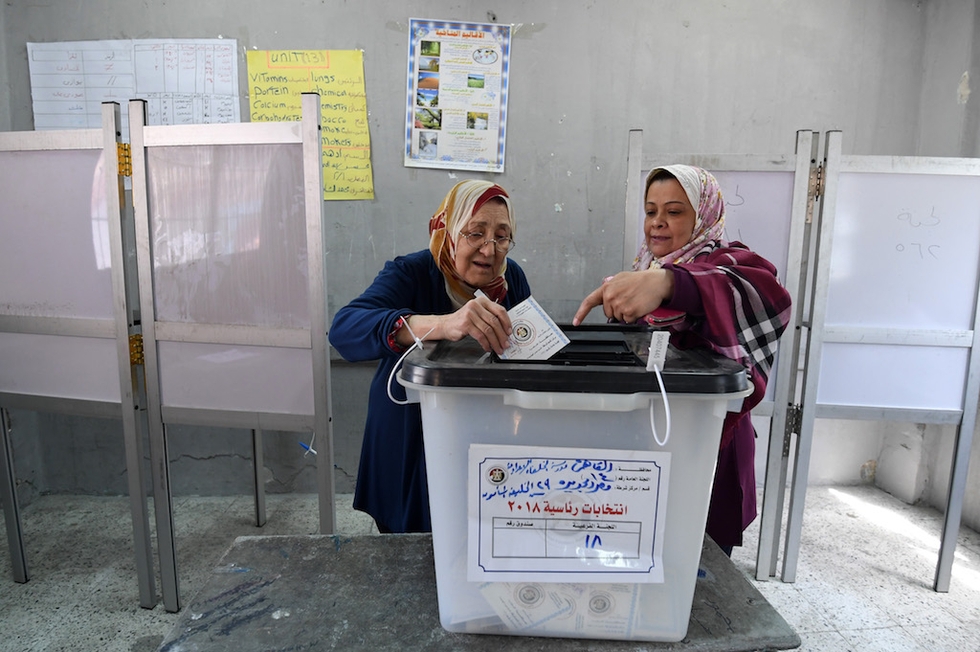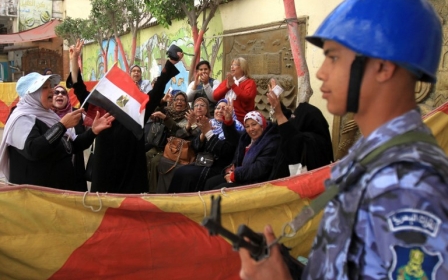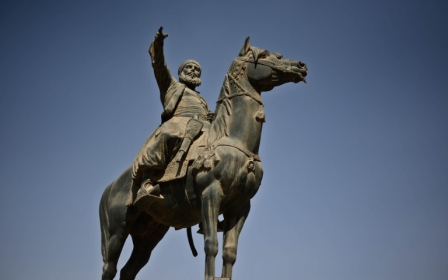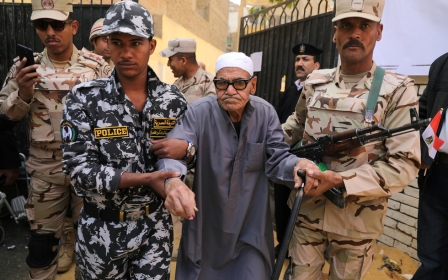Egyptians offered food and money to vote on last day of election

Egyptian voters said they had received payments, food and other incentives to go to the polls as authorities sought on Wednesday to achieve the high turnout President Abdel Fattah al-Sisi wants to cement his all but guaranteed victory.
As voting went into the third and final day, turnout was seen as the critical factor in an election where any contest was eliminated through the arrest or intimidation of the former military commander's most serious challengers.
Sisi said he wanted more opponents to stand, but instead faced just one who has been dismissed as a dummy candidate.
The election commission has said the vote is free and fair.
Sisi, who led the military overthrow of freely-elected Islamist president Mohamed Morsi in 2013, has promised security and stability and to revive the economy after unrest that followed a 2011 popular uprising.
Sisi's key allies include the United States and the powerful Gulf monarchies of Saudi Arabia and the United Arab Emirates.
In the first two days of voting, turnout was estimated at well below the 47 percent of the electorate who backed Sisi for the first time in 2014. By Wednesday, authorities appeared desperate to garner a higher percentage.
Incentives
Voters interviewed by Reuters in the first two days of polling said they had been offered money, boxes of basic food and services to cast their ballots, or to at least ink their fingers to make it look as if they had.
"I've never voted before, and I didn't intend to this time either," a woman in Cairo's working-class Ward estate said.
"I just went and dipped my finger in the paint and took the 50 pounds ($3)," she said. The woman declined to give her name for fear of reprisals by authorities.
Other women, who also declined to be named, said they had been promised bags of food containing rice and vegetable oil in exchange for votes.
"They told me that if I voted and showed them (the ink on) my finger I will get a bag," said one, who also declined to be named.
The women did not say who exactly had given them money or bags of goods.
Managers at a government financial institution gave employees half of Monday off and ordered them to vote, one employee told Reuters. Employees were told to "not come back without ink on their fingers" and had their hands inspected the next day, the employee said.
Asked for comment, the presidency spokesman said this was not a matter for the presidency to address and referred Reuters to the National Election Commission and spokespeople for the presidential campaigns. Officials at the election commission and the government's foreign press centre did not immediately respond to calls and Whatsapp messages requesting comment.
Some people needed no inducement to vote. Noha al-Nemr, voting in Cairo's middle-class Mohandiseen district, said: "I voted for Sisi of course, because it's enough that because of him, my family and I live in safety - even if there's hardship."
Incentives for voting were made more public in other areas.
In Beheira province, governor Nadia Abdou told Mehwar private TV channel on Monday: "Whichever municipality has the most votes, we will fix their water, sewage and electricity ... We will reward those people who came out in large numbers."
Pro-government media, meanwhile, portrayed failure to vote as a betrayal of Egypt, the most populous Arab country.
'Betraying the martyrs'
Hosts of state-run radio programmes told listeners that if they did not vote, they would be "betraying the blood of the martyrs in Sinai", a reference to a military campaign against Islamist militants in the northern Sinai Peninsula.
An elderly woman in the Mohandiseen neighbourhood of Cairo said she decided to vote after listening to the radio shows.
The vote virtually guarantees Sisi a win. His only opponent is an obscure politician loyal to the incumbent. More serious challengers were forced to step down and several opposition politicians called earlier this year for an election boycott.
Sisi has said he had nothing to do with opposition candidates pulling out, and has repeatedly urged the electorate to vote in great numbers.
Two sources monitoring the election, including one from the National Election Commission, said about 13.5 percent of 59 million eligible voters had cast ballots on Monday.
New MEE newsletter: Jerusalem Dispatch
Sign up to get the latest insights and analysis on Israel-Palestine, alongside Turkey Unpacked and other MEE newsletters
Middle East Eye delivers independent and unrivalled coverage and analysis of the Middle East, North Africa and beyond. To learn more about republishing this content and the associated fees, please fill out this form. More about MEE can be found here.




